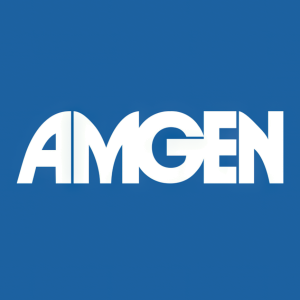AMGEN TO SUBMIT TEPROTUMUMAB MARKETING AUTHORIZATION APPLICATION TO THE EUROPEAN MEDICINES AGENCY
"We are enthusiastic to bring a much-needed medicine to the Thyroid Eye Disease community in
The MAA is supported by multiple well-controlled clinical studies - a Phase 2 clinical study (NCT01868997)1, Phase 3 confirmatory clinical study OPTIC (NCT03298867)2, a Phase 4 study (NCT04583735)3, and a Phase 3 clinical trial in
"People living with Thyroid Eye Disease, a painful and potentially sight-threatening disease, have no approved treatment options in
Teprotumumab is approved for TED in the
In March 2024, Amgen submitted a marketing authorization application to the Medicines and Healthcare products Regulatory Agency (MHRA) in
About Thyroid Eye Disease (TED)
TED is a serious, progressive, debilitating and potentially vision-threatening autoimmune disease.4 It often occurs in people living with Graves' disease, but is a distinct disease that is caused by autoantibodies activating an insulin-like growth factor-1 receptor (IGF-1R)-mediated signaling complex on cells within the retro-orbital space.5,6 This leads to a cascade of negative effects, which may cause long-term, irreversible damage, including blindness.7,8 Signs and symptoms of TED may include dry eyes and grittiness; redness, swelling and excessive tearing; eyelid retraction; proptosis; pressure and/or pain behind the eyes; and diplopia.
About TEPEZZA
Teprotumumab is marketed as TEPEZZA (teprotumumab-trbw) in
INDICATION
TEPEZZA is indicated for the treatment of Thyroid Eye Disease regardless of Thyroid Eye Disease activity or duration.
IMPORTANT SAFETY INFORMATION
WARNINGS AND PRECAUTIONS
Infusion Reactions: TEPEZZA may cause infusion reactions. Infusion reactions have been reported in approximately
Preexisting Inflammatory Bowel Disease: TEPEZZA may cause an exacerbation of preexisting inflammatory bowel disease (IBD). Monitor patients with IBD for flare of disease. If IBD exacerbation is suspected, consider discontinuation of TEPEZZA.
Hyperglycemia: Increased blood glucose or hyperglycemia may occur in patients treated with TEPEZZA. In clinical trials,
Hearing Impairment Including Hearing Loss: TEPEZZA may cause severe hearing impairment including hearing loss, which in some cases may be permanent. Assess patients' hearing before, during, and after treatment with TEPEZZA and consider the benefit-risk of treatment with patients.
ADVERSE REACTIONS
The most common adverse reactions (incidence ≥
Please see Full Prescribing Information or visit TEPEZZAhcp.com for more information.
About Amgen
Amgen discovers, develops, manufactures and delivers innovative medicines to help millions of patients in their fight against some of the world's toughest diseases. More than 40 years ago, Amgen helped to establish the biotechnology industry and remains on the cutting-edge of innovation, using technology and human genetic data to push beyond what's known today. Amgen is advancing a broad and deep pipeline that builds on its existing portfolio of medicines to treat cancer, heart disease, osteoporosis, inflammatory diseases and rare diseases.
In 2024, Amgen was named one of the "World's Most Innovative Companies" by Fast Company and one of "America's Best Large Employers" by Forbes, among other external recognitions. Amgen is one of the 30 companies that comprise the Dow Jones Industrial Average®, and it is also part of the Nasdaq-100 Index®, which includes the largest and most innovative non-financial companies listed on the Nasdaq Stock Market based on market capitalization.
For more information, visit Amgen.com and follow Amgen on X, LinkedIn, Instagram, TikTok, YouTube and Threads.
Amgen Forward-Looking Statements
This news release contains forward-looking statements that are based on the current expectations and beliefs of Amgen. All statements, other than statements of historical fact, are statements that could be deemed forward-looking statements, including any statements on the outcome, benefits and synergies of collaborations, or potential collaborations, with any other company (including BeiGene, Ltd. or Kyowa-Kirin Co., Ltd.), the performance of Otezla® (apremilast) (including anticipated Otezla sales growth and the timing of non-GAAP EPS accretion), the Teneobio, Inc. acquisition, the ChemoCentryx, Inc. acquisition, or the Horizon Therapeutics plc acquisition (including the prospective performance and outlook of Horizon's business, performance and opportunities and any potential strategic benefits, synergies or opportunities expected as a result of such acquisition), as well as estimates of revenues, operating margins, capital expenditures, cash, other financial metrics, expected legal, arbitration, political, regulatory or clinical results or practices, customer and prescriber patterns or practices, reimbursement activities and outcomes, effects of pandemics or other widespread health problems on our business, outcomes, progress, and other such estimates and results. Forward-looking statements involve significant risks and uncertainties, including those discussed below and more fully described in the Securities and Exchange Commission reports filed by Amgen, including our most recent annual report on Form 10-K and any subsequent periodic reports on Form 10-Q and current reports on Form 8-K. Unless otherwise noted, Amgen is providing this information as of the date of this news release and does not undertake any obligation to update any forward-looking statements contained in this document as a result of new information, future events or otherwise.
No forward-looking statement can be guaranteed and actual results may differ materially from those we project. Our results may be affected by our ability to successfully market both new and existing products domestically and internationally, clinical and regulatory developments involving current and future products, sales growth of recently launched products, competition from other products including biosimilars, difficulties or delays in manufacturing our products and global economic conditions. In addition, sales of our products are affected by pricing pressure, political and public scrutiny and reimbursement policies imposed by third-party payers, including governments, private insurance plans and managed care providers and may be affected by regulatory, clinical and guideline developments and domestic and international trends toward managed care and healthcare cost containment. Furthermore, our research, testing, pricing, marketing and other operations are subject to extensive regulation by domestic and foreign government regulatory authorities. We or others could identify safety, side effects or manufacturing problems with our products, including our devices, after they are on the market. Our business may be impacted by government investigations, litigation and product liability claims. In addition, our business may be impacted by the adoption of new tax legislation or exposure to additional tax liabilities. If we fail to meet the compliance obligations in the corporate integrity agreement between us and the
References
- Smith TJ, Kahaly GJ, Ezra DG, et al. Teprotumumab for thyroid-associated ophthalmopathy. N Engl J Med. 2017;376(18):1748-1761.
- Douglas RS, Kahaly GJ, Patel A, et al. Teprotumumab for the treatment of active thyroid eye disease. N Engl J Med. 2020;382(4):341-352.
- Douglas RS, et al. Efficacy and Safety of Teprotumumab in Patients With Thyroid Eye Disease of Long Duration and Low Disease Activity. The Journal of Clinical Endocrinology & Metabolism. 2023; 109 (1): 25-35.
- Barrio-Barrio J, et al. Graves' Ophthalmopathy: VISA versus EUGOGO Classification, Assessment, and Management. Journal of Ophthalmopathy. 2015;2015:249125.
- Weightman DR, et al. Autoantibodies to IGF-1 Binding Sites in Thyroid Associated Ophthalmopathy. Autoimmunity. 1993;16(4):251–257.
- Pritchard J, et al. Immunoglobulin Activation of T Cell Chemoattractant Expression in Fibroblasts from Patients with Graves' Disease Is Mediated Through the Insulin-Like Growth Factor 1 Receptor Pathway. J Immunol. 2003;170:6348-6354.
- McKeag D, et al. Clinical features of dysthyroid optic neuropathy: a European Group on Graves' Orbitopathy (EUGOGO) survey. Br J Ophthalmol. 2007;91:455-458.
- Bartalena L, Kahaly GJ, Baldeschi L, et al. The 2021 European Group on Graves' Orbitopathy (EUGOGO) Clinical Practice Guidelines for the Medical Management of Graves' Orbitopathy [published online ahead of print]. Eur J Endocrinol. 2021 Jul 1:EJE-21-0479.R1. doi: 10.1530/EJE-21-0479.
CONTACT: Amgen,
Madison Howard, 773-636-4910 (media)
Jessica Akopyan, 805-440-5721 (media)
Justin Claeys, 805-313-9775 (investors)
![]() View original content to download multimedia:https://www.prnewswire.com/news-releases/amgen-to-submit-teprotumumab-marketing-authorization-application-to-the-european-medicines-agency-302128358.html
View original content to download multimedia:https://www.prnewswire.com/news-releases/amgen-to-submit-teprotumumab-marketing-authorization-application-to-the-european-medicines-agency-302128358.html
SOURCE Amgen








